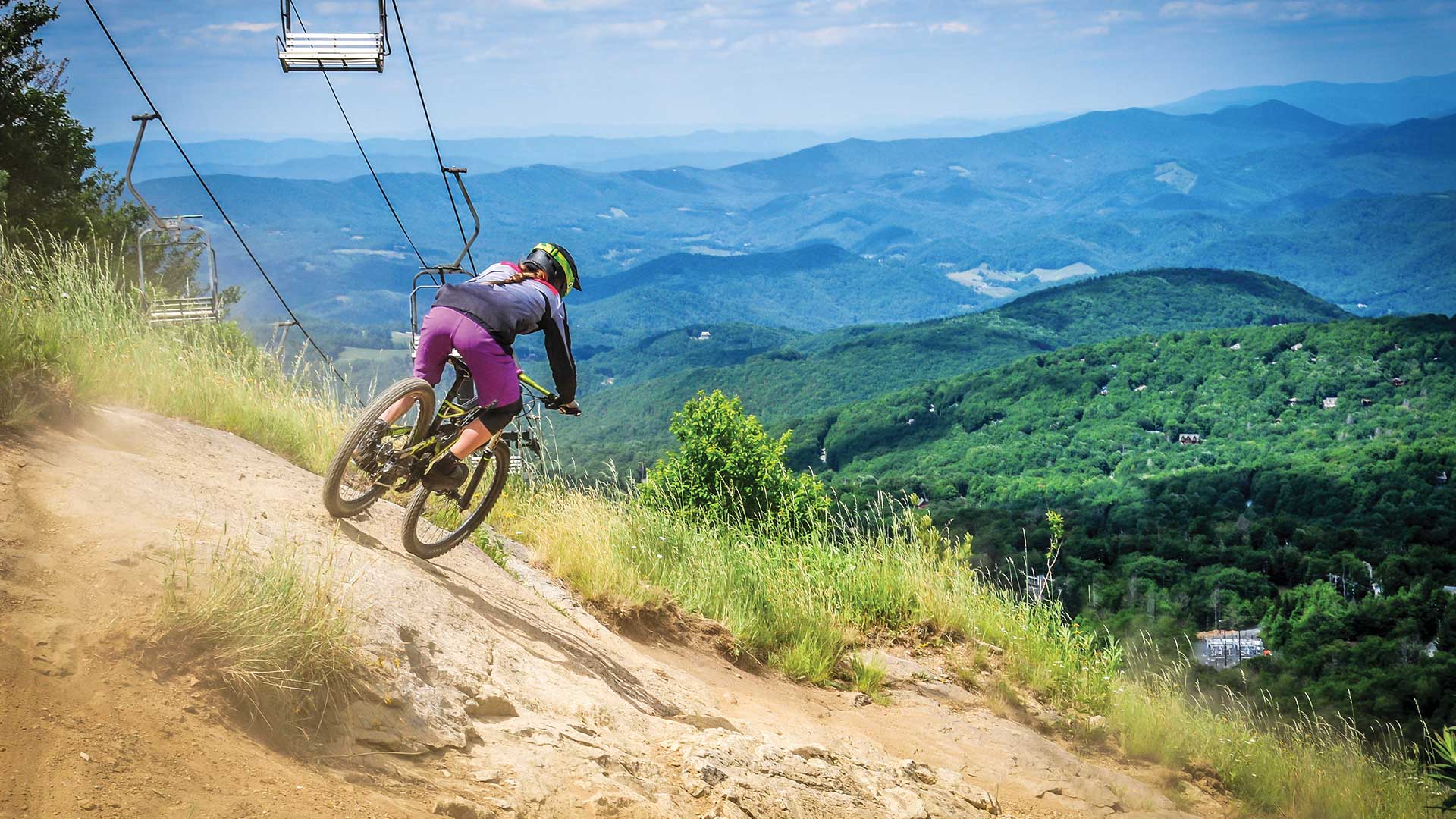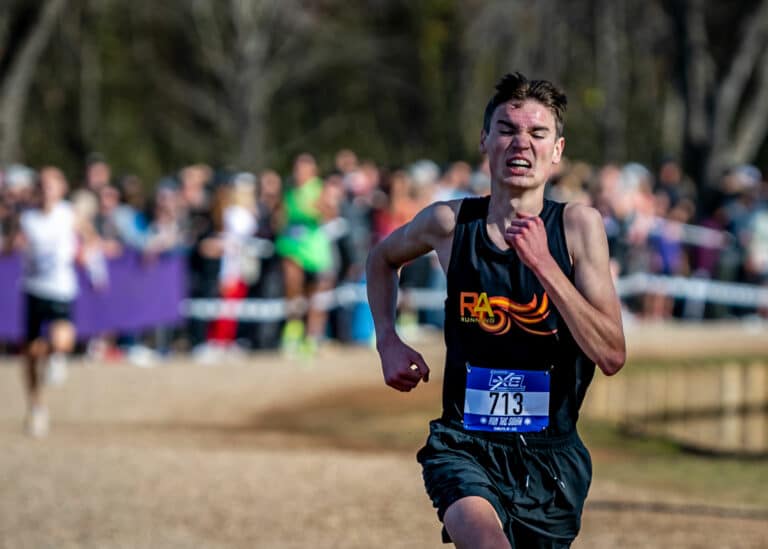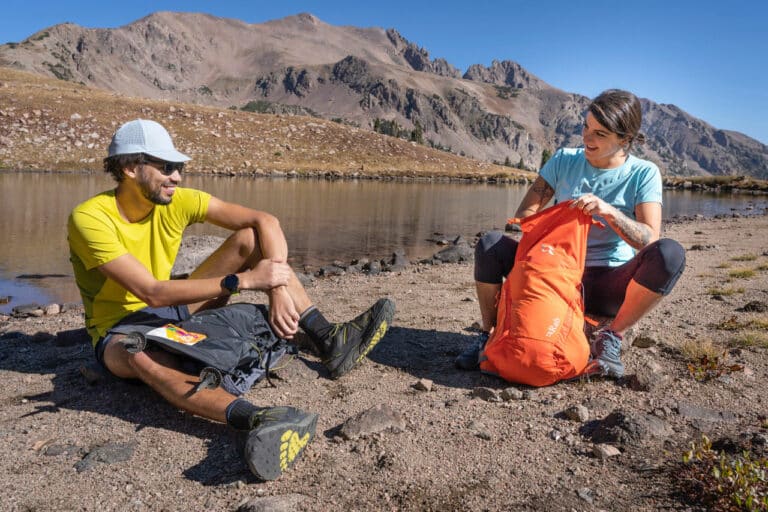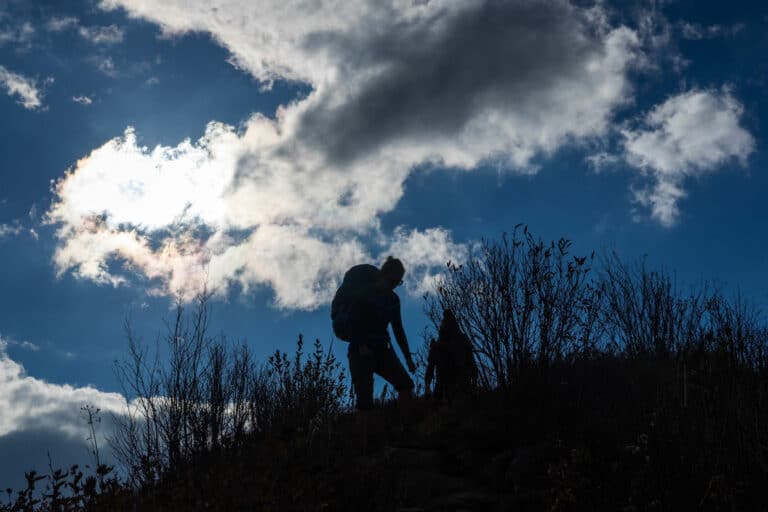How Bike Parks are Changing the Game at Ski Resorts
Downhill resorts throughout the region are making major investments in bike parks, and that’s good news for skiers, bikers—and beer-drinkers.
Winter is still in full swing when I arrive at Massanutten Resort in McGaheysville, Va. The snowguns blast at full-throttle, showering the parking lot in faint dustings of manmade powder.
I find Bike Park & Snow Sports Rental Manager Jonathan Albert and Lead Bike Park Supervisor and Bike/Ski Patroller Scott Wooten in the rental shop. It’s surprisingly busy for a Tuesday morning, so we make our way to an empty table in the lodge overlooking the slopes.
“Last Saturday was our busiest day this season,” says Albert. “Business is good.”
Good, but not great. Record cold spells this past winter allowed many resorts in the region to run the guns earlier and build their base quicker, but there’s no denying that the ski season these days just isn’t what it used to be.
According to the 2016-2017 National Ski Areas Association End of Season Report, resorts in every region except the Rocky Mountains are witnessing decreasing or plateauing numbers of skiers and snowboarders. Even the powder Shangri La that is the Pacific West saw erratic resort attendance, which directly coincides with fickle winters.
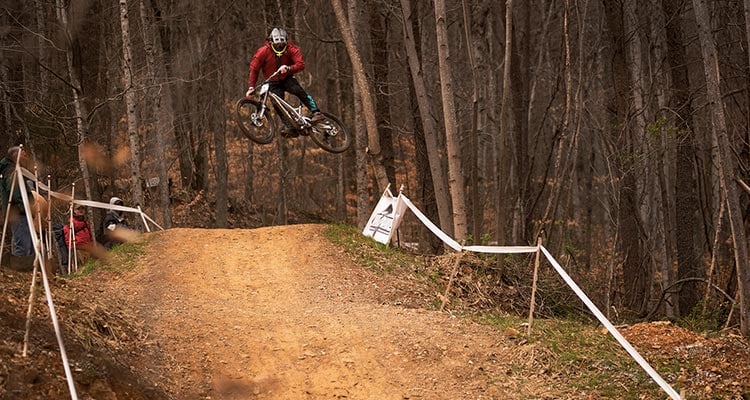
It’s in part due to that unpredictability that, in July of 2016, Massanutten joined the budding ranks of Southeastern ski resorts offering lift-access biking in the summer. Unlike many resorts, which turn to ghost towns in the off-season, Massanutten is different in that it has a timeshare member base. Prior to 2016, summer business wasn’t dead by any means, but it wasn’t thriving either.
Members could swim at the water park, play mini golf, or swing around in the Bungee Dome, but all of that seemed a little kitschy in the shadow of a perfectly aesthetic mountain. For decades the resort had already been building its status as a mountain bike destination—their signature downhill YEE-HAW! and cross-country HOO-HA! races were started 20 and 30 years ago respectively. The resort also maintains a unique partnership with the Shenandoah Valley Bicycle Coalition, which manages the resort’s 30-mile Western Slope trail system. Still, those trails are notoriously rooty, rocky, and technical. Hardly the type of trail an inexperienced timeshare owner would want to ride.
In 2013, Massanutten got the nudge it needed when nearby Bryce Resort, also a timeshare resort, opened up its own bike park. Seeing their neighbor’s success was just the impetus Albert and Wooten needed to push a bike park agenda forward.
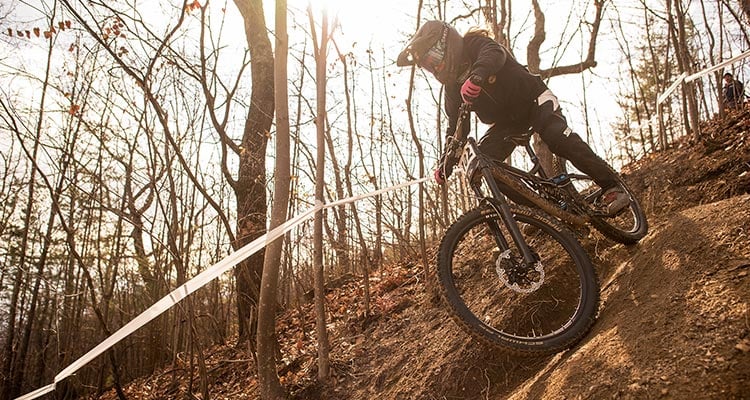
“We already had the heads and beds,” says Wooten. “The people were already here. We call that low-hanging fruit. A huge majority of our summer clients have been coming for one week every summer for 20 years. If they get exposed to mountain biking one year, we can expect them to come back and bring friends and build that momentum and resort clientele.”
That momentum has been fast and furious for Massanutten, which will open later this month for its third season. With the addition of the bike park came 30 new full- and part-time jobs. Summer weekends are always busy with lessons and clinics and races. And though the greater Shenandoah Valley cycling community has the reputation of being rock garden evangelists, the Massanutten Bike Park prides itself on offering plenty of beginner trails to complement the quality singletrack both on the Western Slope and in the adjoining George Washington and Jefferson National Forests.
“What is special about a bike park is it lowers that barrier of entry into the sport to show that it’s something everybody can do,” says Wooten. “Mountain biking is not a friendly sport to get into. You have to be willing to dedicate your money and energy to getting good. It can be very unapproachable. But a bike park shows it’s not just for doctors and fitness freaks. It’s for anybody.”
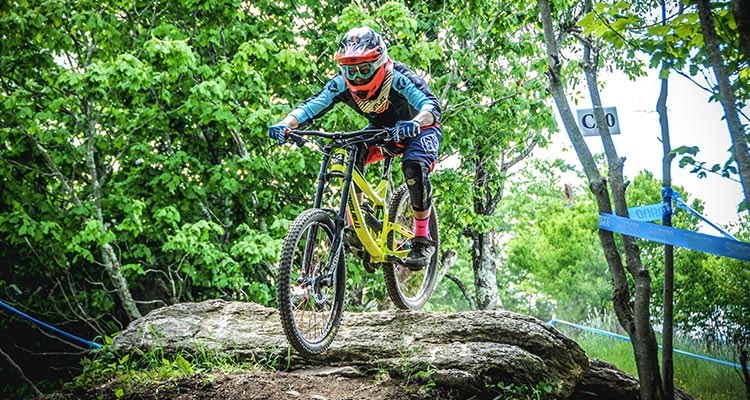
Payoffs of the Park
It’s a similar tune down at Beech Mountain Resort in Beech Mountain, N.C. In the early 2000s, the resort hosted a number of National Off-Road Bicycle Association (or NORBA, the predecessor to USA Cycling) races. Then again, in 2011 and 2012, it served as the venue for the USA Cycling Mountain Bike Gravity National Championships.
But when the resort went to open up a proper bike park in 2013, it became clear that those courses were suited more for intermediate and advanced riders, not beginners.
“What we were seeing is that existing infrastructure was really hurting Beech’s ability to exist as a public facility because they were so focused on being race tracks,” says Elevated Trail Design co-owner Andrew Mueller. “We made some major design changes to better accommodate a wider range of riders but also to just use more of the terrain so you can fit a maximum amount of trail experiences in a small area.”
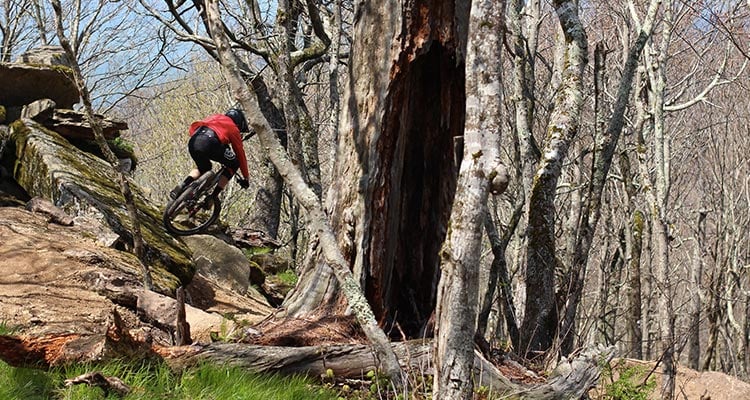
The resulting eight-trail system is a smorgasbord of technically precise rock gardens and flowy machine-built butter. For Beech Mountain Ski Patrol Director Brad Blackwell, keeping the resort’s trails fresh isn’t just about catering to newcomers in the sport; it’s about staying relevant in an ever-changing industry.
“People used to want to ride the most technical, gnarly trails, but now people don’t want to buy a $9,000 bike just so they can ride it at the bike park,” he says. “They want to buy one bike and be able to do everything on it.”
“They’re the same technical trail you might ride in Pisgah, but you’re not going to pedal to the top.” – Neko Mulally
The booming bike culture here feels organic, not forced—trails designed by riders for riders, the Skybar at the top and brewery at the bottom, the High Country setting and verdant forests. On a busy weekend, with a couple hundred riders threading the mountain and car racks stacked with bikes in the parking lots, the scene could almost be plucked from a little corner of Whistler. Except it’s not British Columbia. It’s uniquely Southeastern, and it’s this, says World Cup rider Neko Mulally that makes Beech what it is.
“The cool thing about most of the Southeast bike parks is they’re not just making a 10-foot wide jogging path down the mountain,” he says. “They’re the same technical trail you might ride in Pisgah, but you’re not going to pedal to the top. Beech can be pretty rocky and they do a good job of working with what the mountain has and following the natural way of the terrain. By leaving that stuff intact and not building over it or getting rid of it, you keep the character of the mountain.”
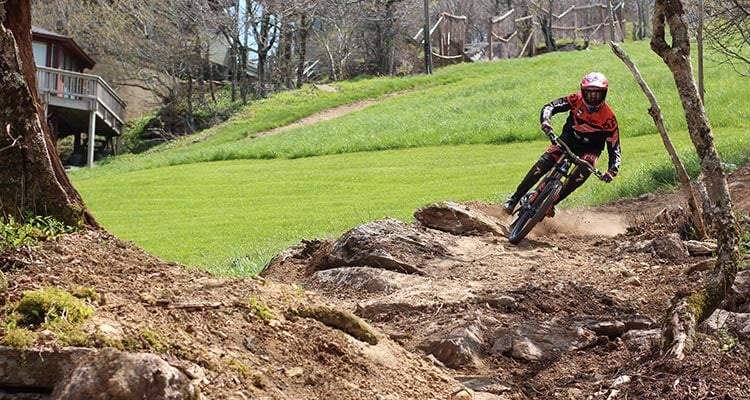
Back in 2016, Mulally started the Downhill Southeast race series to showcase some of these venues and to give downhill competitors like himself a chance to get some races in before heading to the international stage. The four-part series takes place both at resort bike parks and shuttle bike parks. This year, Beech Mountain and Massanutten will both be venues as will Windrock Bike Park near Oliver Springs, Tenn., which Mulally and his business partner Sean Leader took over in 2016.
As a competitor and event organizer, Mulally says the resort model is the unicorn of downhill race venues due in large part to the amenities that are already in place: ample flat parking, lift access, electricity at the top and bottom of the hill, hotels, restaurants. He believes resorts all throughout the Southeast have a real opportunity to tap into a market that’s not only on the rise—Sports Marketing Surveys, Inc., found that mountain biking rose in popularity by 16% between 2010 and 2015—but also a lifelong sport.
“If we do a good job with these races, then people will have a good taste of that venue and will want to come back and check it out another time. It’s not just a flash in the pan. Some resorts put in a zip line or a mountain coaster, but mountain biking is much more sustainable. It’s something people get into and, it’s the same with skiing, it doesn’t get old. You want to keep riding. It’s not just a once-and-done sort of activity.”
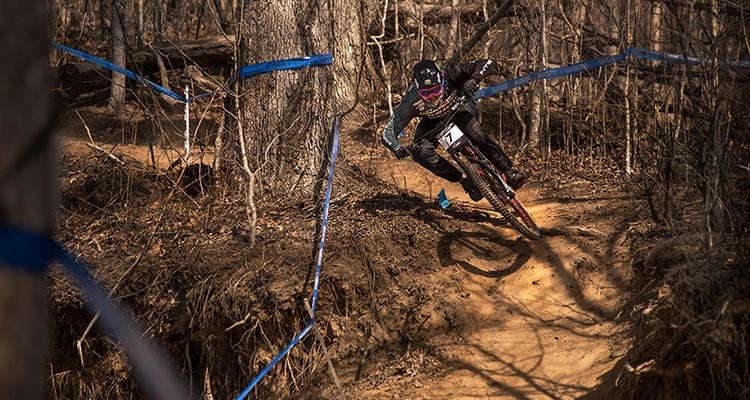
Pay to Play
So why aren’t more Southeastern resorts adopting the summertime bike park model? For starters, the initial investment is big. Like, big-big.
“I’ll just say it’s in the hundreds,” says Bryce Park’s Director of Mountain Operations. “That includes everything from tools to rental bikes to staff to trail building. That’s everything, all in.”
But even if the resort has deep pockets, it takes an army to make a bike park great. Philip Duncan out of Slaty Fork, W.Va., was one of the primary instigators for Snowshoe Bike Park in West Virginia. For years, Duncan worked primarily as a graphic designer and marketer for the resort, but when he started getting wind of what Whistler was up to, he knew Snowshoe had to hop on board.
Fortunately for Duncan, the General Manager at the time was from Whistler and he embraced the idea with open arms. In 2004, Snowshoe became the first in the Southeast to open up a resort bike park. But even with Intrawest financially backing Duncan’s initiative, the early years were absolutely a labor of love.
“Me and Dave Huber and a handful of other people were super stoked and we were the driving force,” he says. “Some summers we weren’t even riding that much because we were building trail. You have to have passion in your employees to convince the powers-that-be that this is a good thing. That’s the only way we were able to do it.”
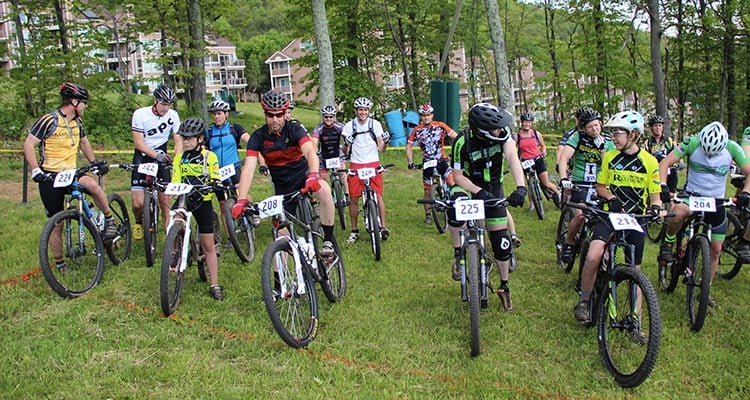
Now that the mountain biking scene is no longer in its infancy, which it arguably still was back in the early 2000s, there are numbers to support the love. In 2017, the Outdoor Industry Association found that cyclists spend over $96 billion in gear and trip-related expenses. All of that revenue contributes to nearly 850,000 jobs and generates over $6 billion in state and local taxes.
Interestingly, skiers and snowboarders nationwide only spend $73 billion annually, which creates less than 700,000 jobs and $5 billion in state and local taxes. Currently, bike park visits account for less than 3% of annual resort visits in the country, according to MTBparks.com, but with over 45 million Americans identifying as cyclists, that number has room to grow.
Here in the Southeast, where a mild climate dominates two-thirds of the year, it’s not hard to envision bike parks overtaking skiing in the future. But for now, says Derek Clifton at Bryce, winter is king.
“We’ve never had a bad year. We’ve doubled our bike park business almost every year since we started. It just gets bigger and bigger and bigger. It won’t ever surpass the winter season, but it is the second highest revenue maker on our mountain, and it is totally 100% worth it.”
